▶ 5 Teas That Can Improve Your Health
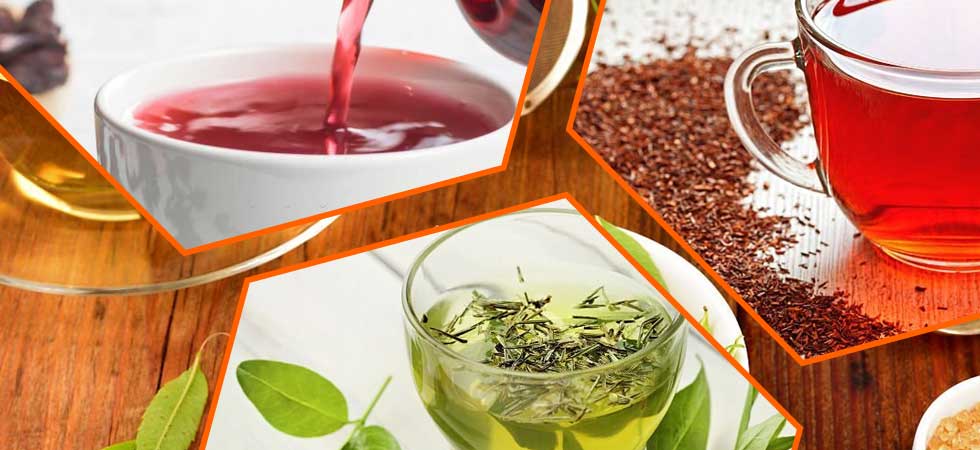
5 Teas That Can Improve Your Health. If you are reading this, you will likely love tea and enjoy a hot cup of tea. What are the most significant health advantages that some of these calming teas may provide us, though? Discover 5 Teas That Can Improve Your Health by reading on.
A Japanese scholar Okakura Kakuzo wrote in one of his publications The Book of Tea that “tea began as a medicine and grew into a beverage”.
He covers the background of tea and the tenets of the traditional Japanese tea ritual in great detail.
Kakuzo was right; a current study on the origins of tea drinking across the world demonstrates that this beverage was first drunk more for mindfulness purposes, encouraging the user to take calm sips and be consciously present.
Instead, the tea plant (Camellia sinensis), as demonstrated by Prof. Victor Henry Mair from the University of Pennsylvania in Philadelphia, became well-known for its therapeutic benefits early on in its history, as documented in The True History of Tea.
Most of the familiar tea brews, including black tea, green tea, white tea, and oolong tea, are made from the two major kinds of the tea plant, Camellia sinensis Sinensis and Camellia sinensis assamica.
There are other different varieties of teas and infusions made from various other plants, including Aspalathus linearis, sometimes referred to as “rooibos” or “redbush,” which is one of them. We’ll offer you an overview of the top five teas that are good for your health in this article.
1. Green tea
Green tea has long been hailed for its therapeutic effects and is a favorite among tea lovers worldwide. Now that some of these advantages have been proven by current research, it is possible that green tea may safeguard a number of different facets of human health.
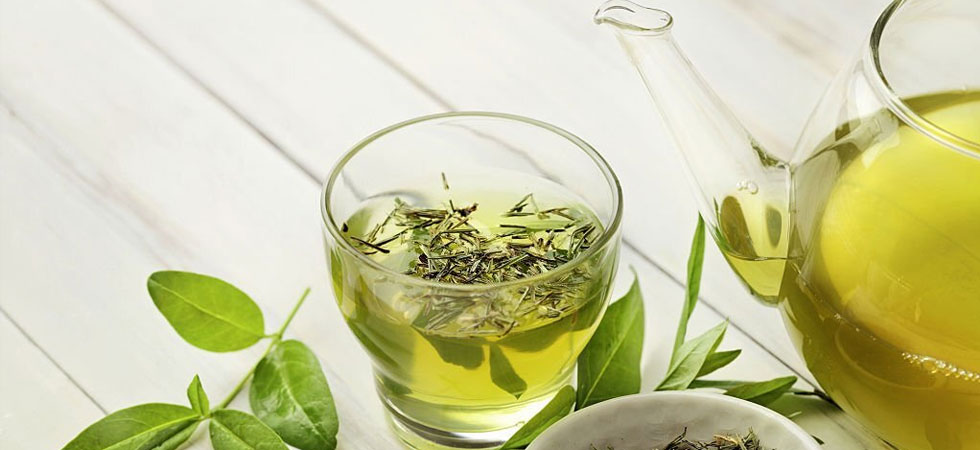
To start, this beverage has been shown to improve cognitive performance, with one research linking it to improved working memory—the kind of memory we use every day.
Working memory-related brain regions showed more intense activity in healthy individuals who agreed to consume a soft drink containing 27.5 grams of green tea extract, according to Swiss researchers at the University Hospital of Basel.
The frontal and parietal lobes of the brain are two areas involved in elements of learning, memory processing, and decision-making; as a result, people who had consumed the green tea extract had a greater connection between these two brain regions.
Green tea’s high polyphenol content, which are micronutrients with antioxidant qualities, has been related to its health benefits. These compounds can work as antioxidants to defend against the action of free radicals, which cause the kind of cellular damage associated with aging.
The same green tea polyphenol is also thought to inhibit the development of tumor cells in other cancers, including pancreatic cancer.
Epigallocatechin gallate, according to research conducted by the Los Angeles Biomedical Research Institute in California, can interfere with pancreatic cancer cells’ metabolism, halting their development.
2. Jasmine tea
The tea we refer to as “jasmine tea” often has green tea as the core ingredient and then has jasmine flowers added for an enhanced scent. In fact, it is often called “jasmine green tea”.
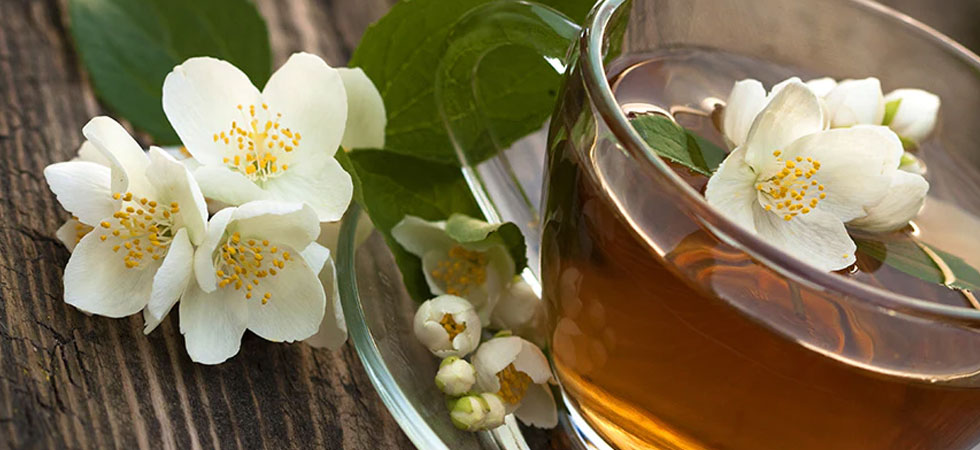
Jasmine flowers also contribute their own medical qualities to the mix, so the advantages of jasmine tea aren’t just a result of the tea plant’s antioxidant effects.
Sanpin-cha, a unique combination of green tea and jasmine, is a favorite beverage among the residents of a healthy, long-lived village in the Okinawa Prefecture of Japan, according to writers Héctor Garca and Francesc Miralles in their book Ikigai: The Japanese Secret to a Long and Happy Life.
Jasmine is thought to lessen the effects of stress and has been associated with greater physical wellbeing. For this reason, several researchers have experimented with substances produced from this plant in their quest for more effective treatments.
And there is a valid explanation if you want to drink jasmine tea only because you adore the way it smells. The European Journal of Applied Physiology reported on research that demonstrated the calming, nerve-calming, and mood-regulating properties of the aroma of jasmine tea.
3. Rooibos tea
The South African native plant Aspalathus linearis is used to make rooibos, sometimes known as “redbush tea,” which has antioxidant benefits.
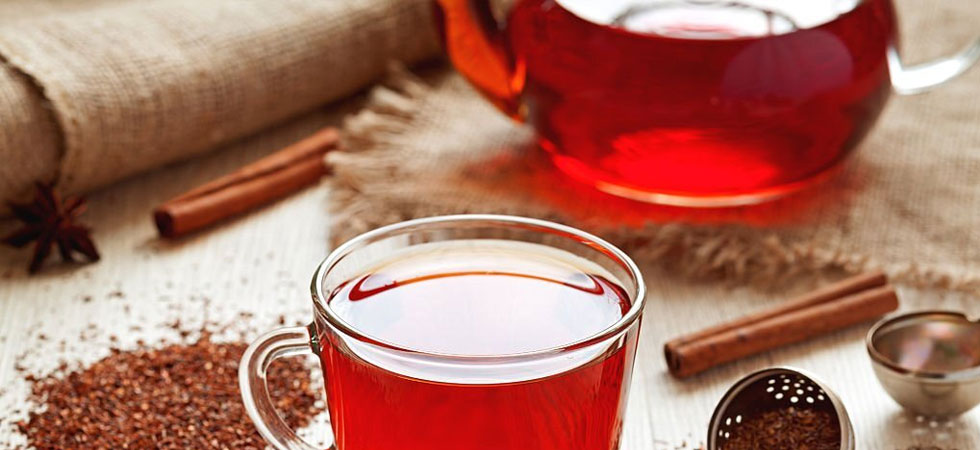
According to research, rooibos has antioxidant properties that are comparable to those of green tea, if not quite as potent.
According to a recent rat model study, the antioxidants in rooibos tea may shield the liver from oxidative stress, making this organ more resistant to externally induced damage.
The study’s authors noted that their results point to the possibility that rooibos tea or dietary supplements made from it could benefit one’s health.
Additionally, rooibos has been linked to reducing blood pressure and easing tense muscles, suggesting that one of the flavonoids (pigments) it contains, chrysoeriol, may be the active component in this case.
Rooibos doesn’t contain any caffeine, unlike green or black tea, therefore it won’t have the same stimulating effects. It is therefore safe to consume alcohol well into the evening.
4. Hibiscus tea
Hibiscus is a plant whose flowers can be used to make energizing beverages, as well as to add a subtle “punch” to salads or as an elegant garnish for elegant dishes. Those of you who enjoy the refreshing taste of a more sour brew may also be familiar with herbal infusions of hibiscus.
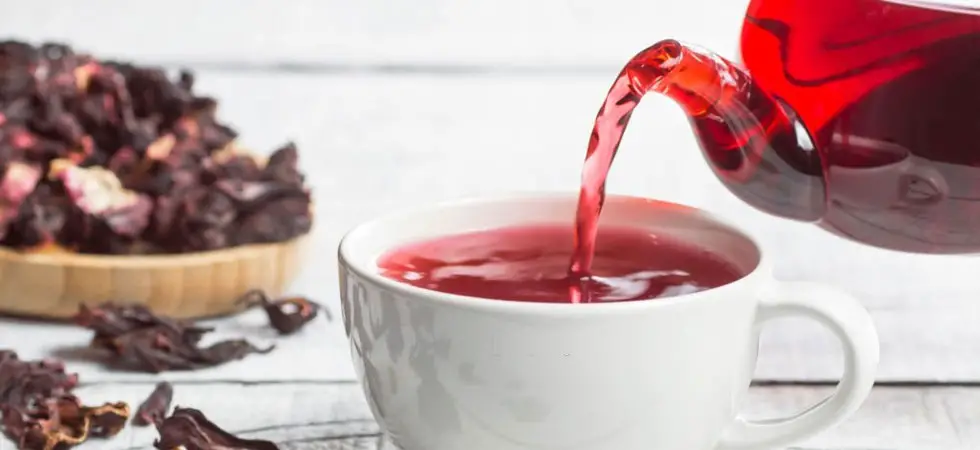
The “roselle,” or Hibiscus sabdariffa, is the cultivar that is most frequently utilized.
Its calyces are often used to make tea, or more precisely “tisane” (herbal tea), however other plant components including the leaves, seeds, and roots are also edible.
According to studies, hibiscus calyx and leaf extracts have antioxidant and antitumoral properties. Trusted Source
As a result, they may fight against specific types of leukemia cells as well as provide protection against the aging effects of free radicals at the cellular level.
Additionally linked to cardiovascular advantages, hibiscus tea lowers systolic and diastolic blood pressure, or the pressure before and after a heartbeat, respectively.
Hibiscus leaves have also frequently been connected to a wide range of health advantages even though they are not as frequently utilized to make tea. A 2015 study found that the polyphenols in hibiscus leaves may aid in the induction of tumor cell death in skin cancer.
Another research that year suggested that hibiscus leaf extracts could stop prostate cancer cells in their tracks.
5. Lemon verbena tea
Lemon verbena tea, formally known as Aloysia citrodora, is another herbal tea whose therapeutic benefits are becoming more and more acknowledged.
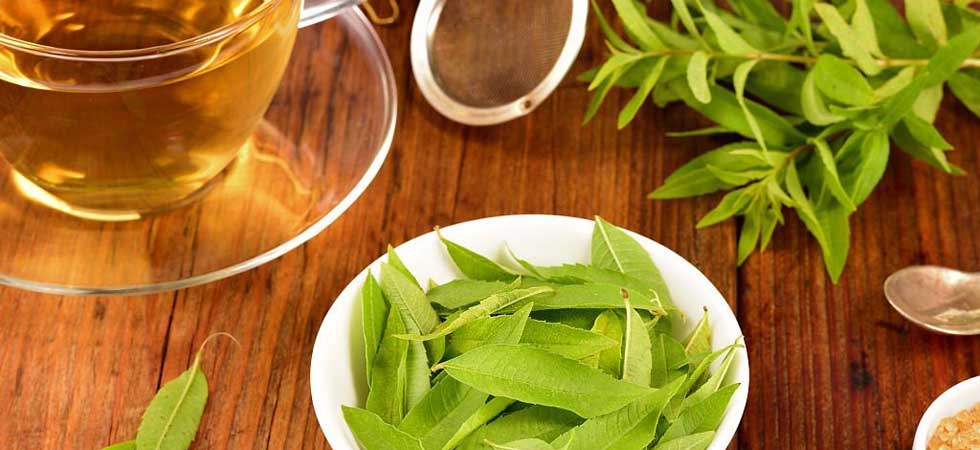
It is the citrus-flavored cousin of verbena, sometimes known as vervain, a more well-known plant that has long been employed in herbal infusions (Verbena officinalis).
For those, like myself, who prefer a milder citrus fragrance to the harsh lemon flavor of most marketed citrus tea blends, lemon verbena infusions are a terrific alternative.
This plant was being marketed as a “weight reduction tea” in a nearby organic store when I first encountered it being offered as a tisane herb.
Studies have actually revealed that the polyphenols in this plant can reduce the synthesis of fatty acids, suggesting a possible role for it in the management of health problems associated with obesity.
Additionally, some persons with multiple sclerosis may benefit from having their blood levels of inflammatory markers reduced by lemon verbena extracts, according to research.
The study’s authors write, “Results show that supplementation with lemon verbena extracts may modify the profile of cytokines [inflammation indicators] depending on the clinical subtype.”
In conclusion, enjoying a cup of your preferred tea or tisane may be a relaxing way to carve out some self-indulgence time and subtly enhance your physical and mental well-being.

Nathan Francis Theodore is a Writer, Adventurer, Foodie, Entrepreneur, Trader, and Scuba Diver.
He loves traveling and exploring new things about culture, nature, and possibilities.
He also loves writing and this blog is dedicated to sharing his experience and personal routine.
You can support his work by contributing to this blog. Donate
Follow on
Twitter: @NathanFranscis
Instagram: nate020
Facebook: NathanTheodoreFrancis










